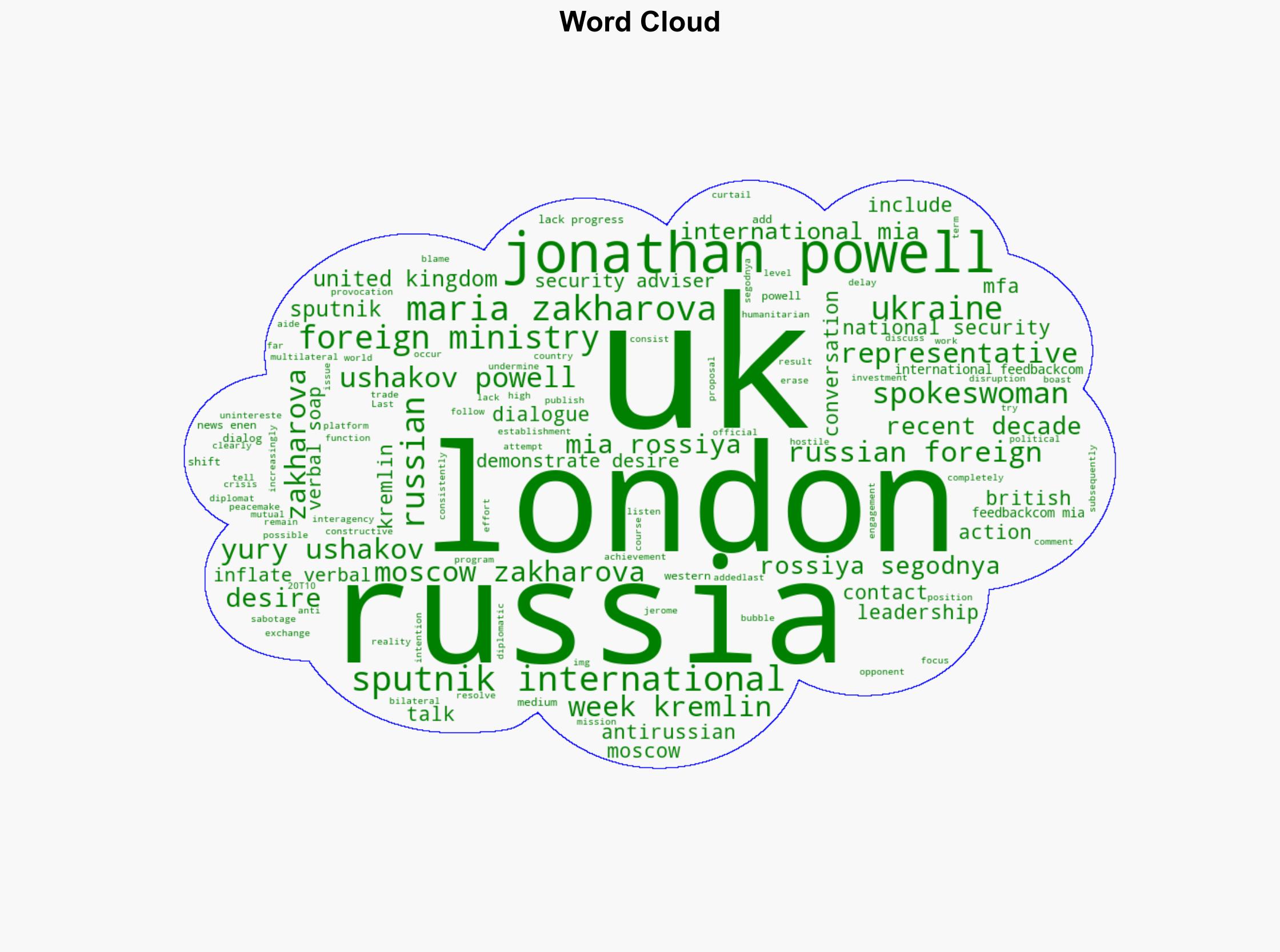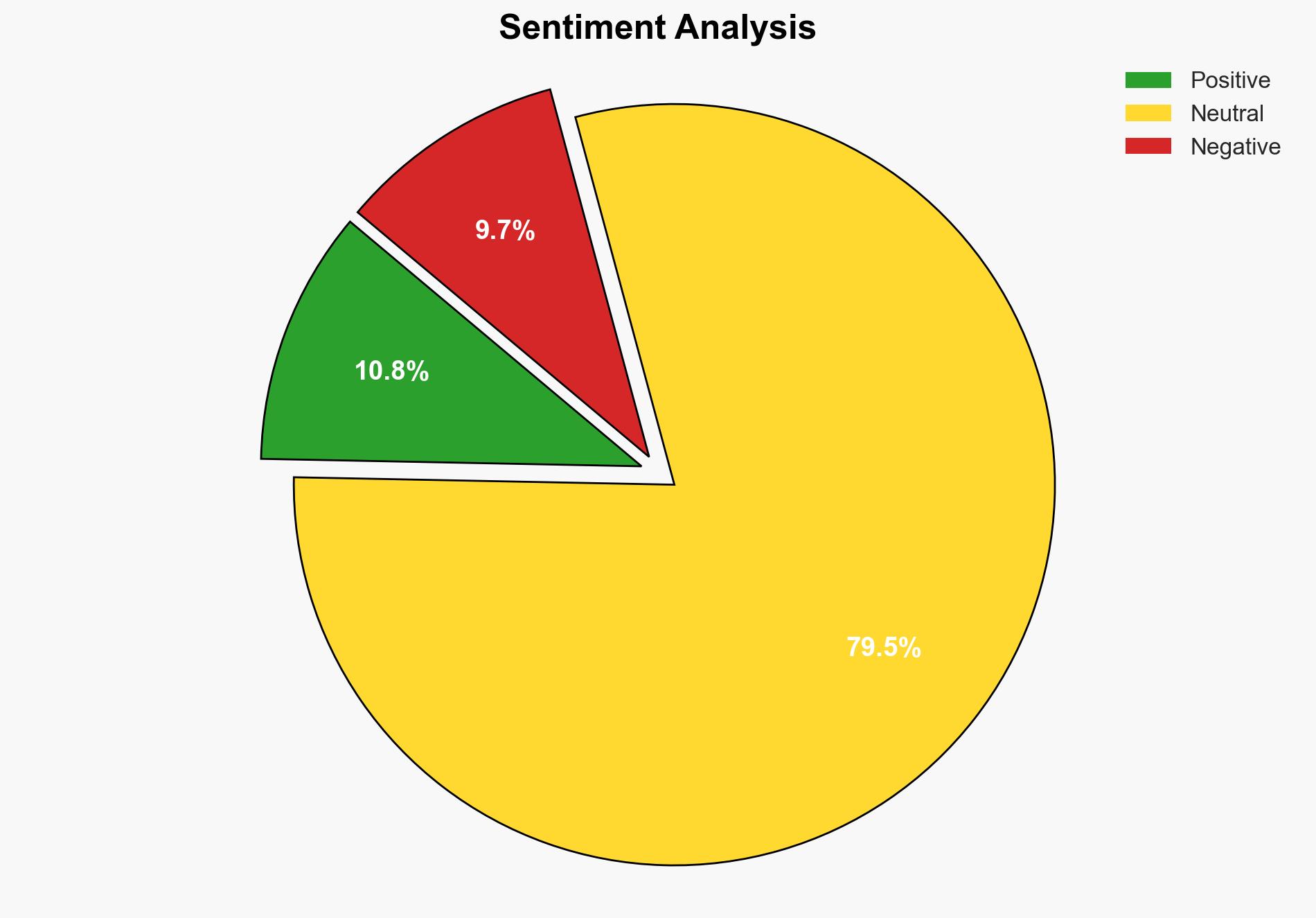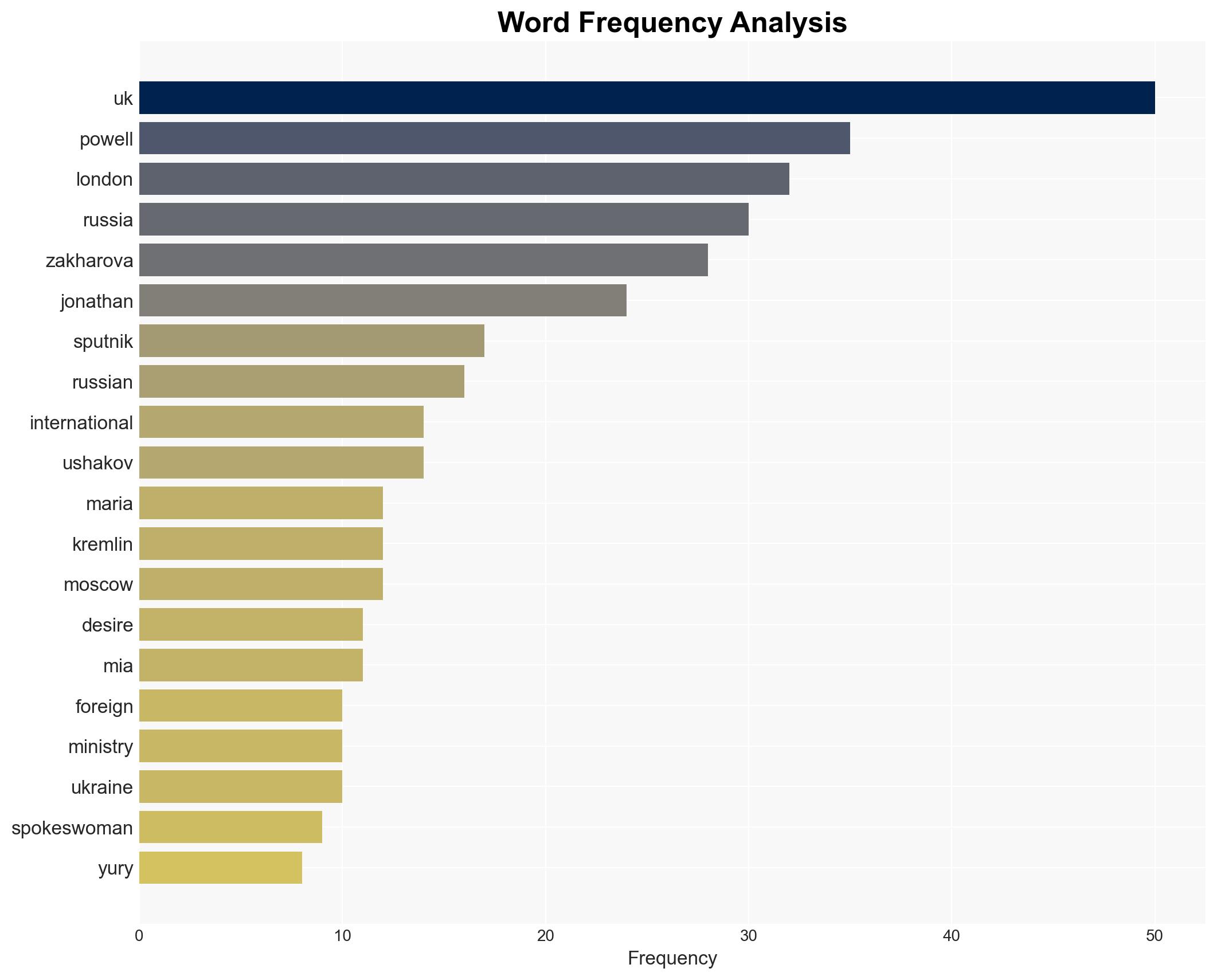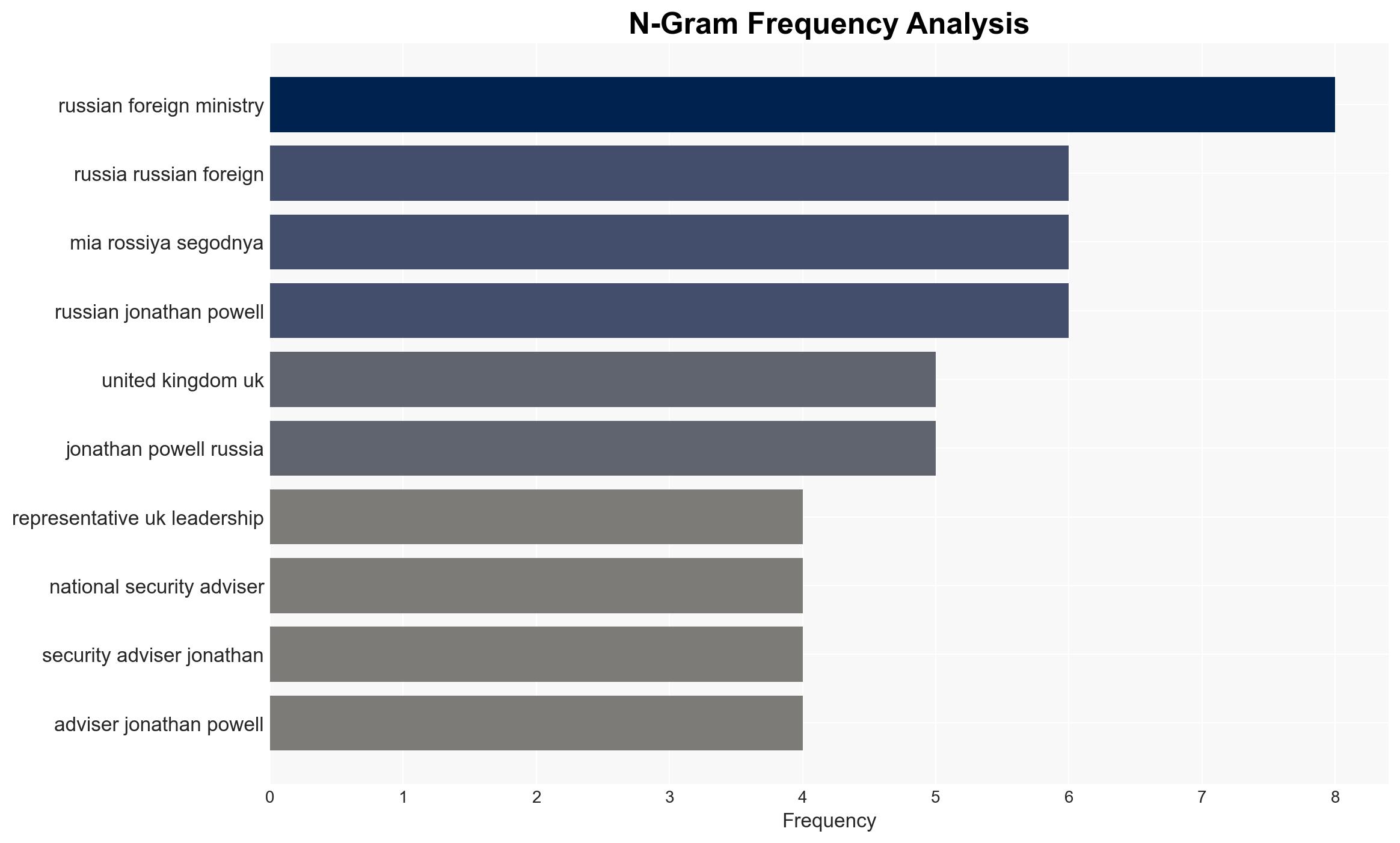UK Shows No Desire for Dialog – Russia’s MFA Spokeswoman – Sputnikglobe.com
Published on: 2025-11-20
AI-powered OSINT brief from verified open sources. Automated NLP signal extraction with human verification. See our Methodology and Why WorldWideWatchers.
Intelligence Report: UK-Russia Diplomatic Relations
1. BLUF (Bottom Line Up Front)
The strategic judgment is that the UK and Russia are currently entrenched in a cycle of mutual distrust and antagonism, with low prospects for meaningful dialogue in the short term. The most supported hypothesis is that both nations are using public statements to solidify their respective narratives, with the UK focusing on maintaining a strong stance against Russian actions in Ukraine, and Russia portraying the UK as unwilling to engage constructively. Confidence Level: Moderate. Recommended action is to monitor diplomatic channels for any shifts in tone or engagement, and to prepare for potential escalation in informational and economic domains.
2. Competing Hypotheses
Hypothesis 1: The UK genuinely lacks interest in engaging with Russia due to strategic alignment with Western allies and a focus on pressuring Russia regarding its actions in Ukraine.
Hypothesis 2: The UK is open to dialogue but is constrained by internal and external political pressures, leading to a public stance that appears hostile.
Hypothesis 1 is more likely given the consistent public messaging from UK officials and alignment with broader Western strategies. Hypothesis 2 is less supported due to the lack of evidence of backchannel communications or diplomatic overtures.
3. Key Assumptions and Red Flags
Assumptions include the belief that public statements reflect genuine policy positions and that both countries are rational actors. Red flags include potential bias in Russian media reporting, which may exaggerate UK hostility, and the possibility of UK media underreporting any Russian diplomatic overtures. Deception indicators include the strategic timing of statements and the use of rhetoric to influence public perception.
4. Implications and Strategic Risks
The current diplomatic impasse could lead to increased political tensions, with potential for escalation in cyber and informational warfare. Economic relations may further deteriorate, impacting trade and investment. There is a risk of miscalculation leading to unintended confrontations in multilateral forums.
5. Recommendations and Outlook
- Actionable steps: Increase intelligence collection on diplomatic communications, enhance cyber defense measures, and engage in multilateral diplomacy to manage tensions.
- Best-case scenario: A shift in diplomatic tone leading to renewed dialogue and de-escalation.
- Worst-case scenario: Escalation in cyber and informational warfare, further damaging bilateral relations.
- Most-likely scenario: Continued public antagonism with sporadic diplomatic engagements lacking substantive progress.
6. Key Individuals and Entities
Maria Zakharova, Jonathan Powell, Yury Ushakov.
7. Thematic Tags
Structured Analytic Techniques Applied
- Cognitive Bias Stress Test: Expose and correct potential biases in assessments through red-teaming and structured challenge.
- Bayesian Scenario Modeling: Use probabilistic forecasting for conflict trajectories or escalation likelihood.
- Network Influence Mapping: Map relationships between state and non-state actors for impact estimation.
Explore more:
National Security Threats Briefs ·
Daily Summary ·
Support us





